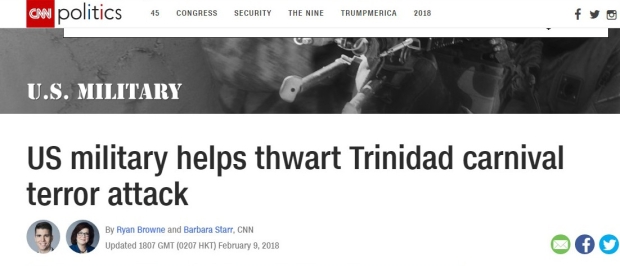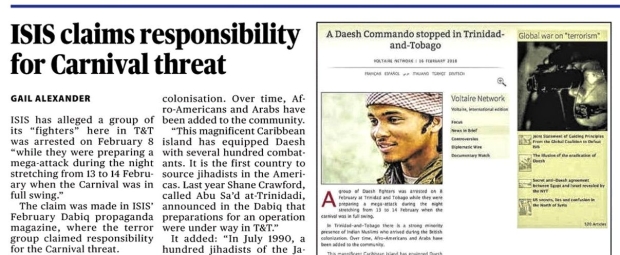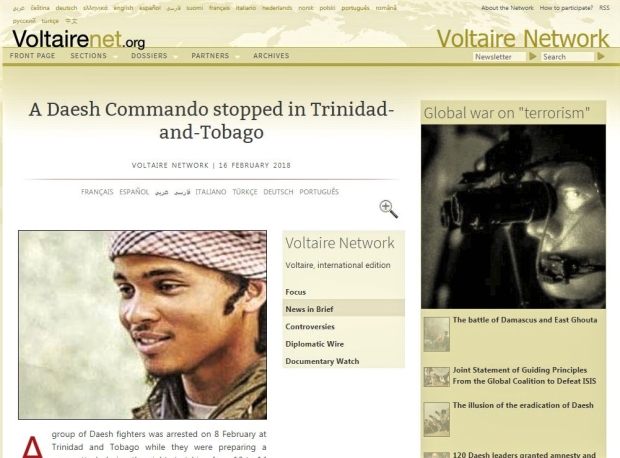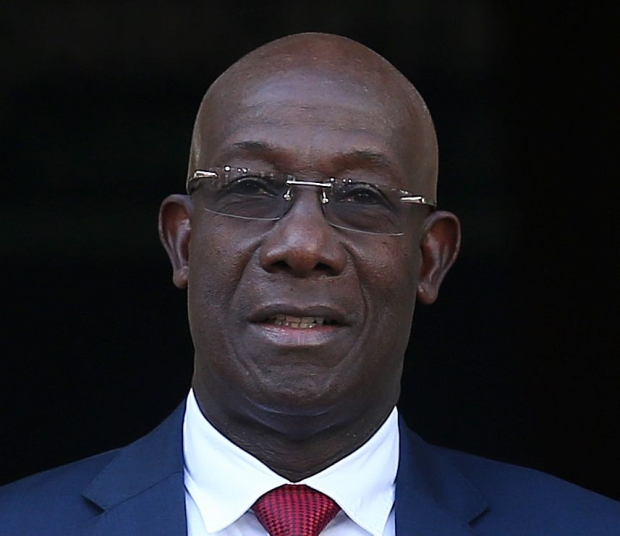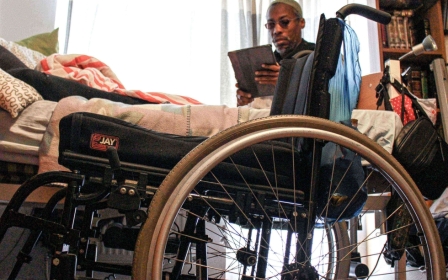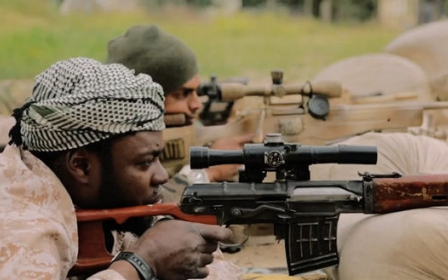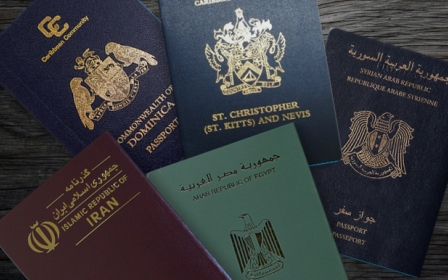The Islamic State 'mega-attack' that wasn't: How Trinidad's 'carnival plot' unravelled
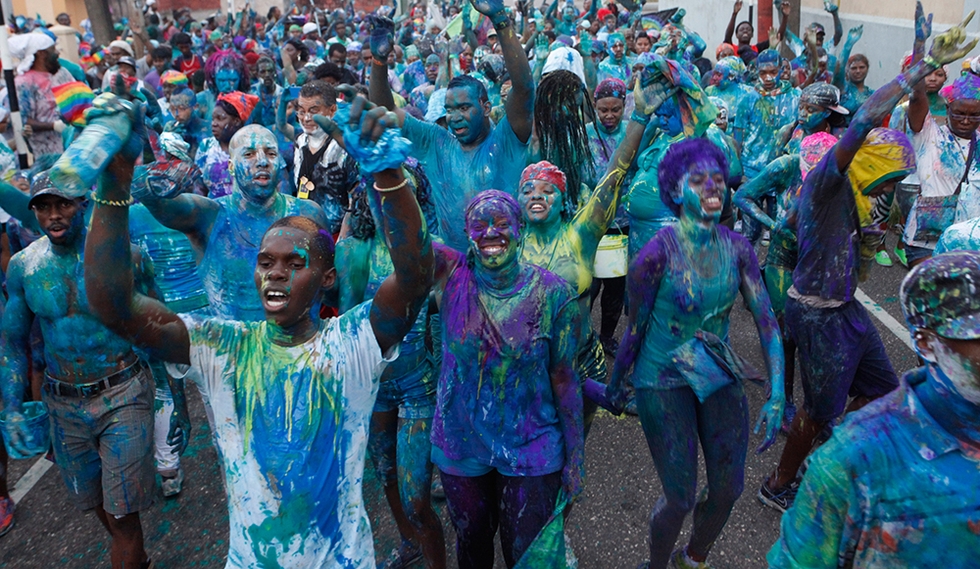
PORT OF SPAIN - It was billed as an Islamic State atrocity in the making, plotted by "high-value" suspects and heroically thwarted by local police and US military. But in the fallout, doubts have been cast on whether the plot to attack a famous Caribbean carnival ever even existed.
A spokesperson for the Trinidad and Tobago Police Service (TTPS) told local media on 8 February that four people had been arrested for questioning after an alleged threat to the event, which was due to start on 12 February. Local media reported that the spokesperson repeatedly declined to say if the threat was terrorism-related.
The carnival, whose present-day origins date back to the early 19th-century, is a big draw in the regional calendar. The Trinidadian government estimates that carnival revenue exceeded TT$ 334m (US$50m) in 2017.
The alleged plot made headlines around the world: the US and UK governments responded by issuing travel warnings to their citizens, including mention of the carnival.
While most news outlets simply reported the travel advisories, CNN went further. An article authored by Ryan Browne and Barbara Starr, CNN’s Pentagon correspondent, said that the US military had helped thwart a terrorism attack.
The article, which is based on interviews with two anonymous US military officials, uses dramatic language and paints the US military in a very favourable light.
"US troops participated in anti-terror raids... helping to capture four high-value targets," it reported, before describing those arrested as "four extremists who are believed to be part of a network engaged in plotting terror attacks."
Starr's use of such sources has often been criticised, not least by Glenn Greenwald, who once described her as the "Pentagon's reporter at CNN".
A follow-up piece, filed by Starr and Nicole Gaouette, featured the headline "US issues security alert for Trinidad and Tobago Carnival" and began "Days before the carnival on the islands of Trinidad and Tobago, multiple US officials tell CNN they are aware of a terror-related threat to the popular annual event."
MEE asked Starr and Browne about the article: they had yet to respond at time of publication.
The Islamic State 'claim'
The reality, however, was very different.
The suspects were not so much "captured" as arrested by local police officers in their homes in the middle of the night. Several mosques in Trinidad were also searched.
During the coming days, at least nine more people were arrested, all of them members of Trinidad’s 66,000 Muslim population.
The world’s media moved on from the story – but it continued to dominate headlines in Trinidad and Tobago, especially after an article in the Trinidad Guardian reported that Islamic State (IS) had claimed the threat to the carnival, and was planning a "mega-attack... when the Carnival was in full swing".
According to reporter Gail Alexander, IS made the claims in the February 2018 issue of Dabiq, its propaganda magazine, which the Trinidad Guardian apparently quoted from at length. As Middle East Eye has previously reported, Trinidad and Tobago has faced problems with citizens leaving the country to join IS, as up to 100 have done in recent years. The government is currently introducing an anti-terrorism amendment bill to combat the threat of the fighters returning.
The legislation will criminalise travel for the purpose of terrorist acts, redefine terrorism to include acts committed abroad and make it easier for the government to propose names of suspected terrorists to the UN Security Council. The legislation was referred to committee in January.
Aaron Zelin, the Richard Borrow Fellow at the Washington Institute for Near East Policy, is separately editor of jihadology.net, a "clearing house for jihadi primary source material and original analysis".
He says that the IS magazine was "discontinued a while ago" and said of the Trinidad Guardian: "They have no idea what they’re talking about."
So where did the newspaper’s story come from?
The print edition of the story included a photograph of a screenshot of an article. The caption underneath reads that it is "An image of the story in Dabiq which claimed ISIS fighters plotting to disrupt carnival had been held."
But the screenshot includes a quote in which IS describes itself as "Daesh", an acronym for the group’s full Arabic name. IS considers the term to be pejorative: reports indicate that it once threatened to cut the tongue out of anyone that used it in its territory.
The screenshot is that of a story from the Voltaire Network website, run by 9/11 truther Thierry Meyssan. Indeed, the words "Voltaire Network" are clearly visible twice, including next to the dateline. It seems that the Guardian had taken the Voltaire Network’s report on the arrests and attributed it to Dabiq magazine. The image does not accompany the story on the Guardian’s website.
MEE asked the Guardian about the article: it had yet to respond at time of publication.
PM's legal adviser quits
While Trinidad and Tobago’s media continued to debate the alleged terrorist threat, at least 13 people continued to be held in police cells for up to six days during the carnival period.
All were later released without charge except for Adil Mansano and Alisha Thomas, who were jointly charged with possession of a firearm. Trinidad has a chronic problem of gun violence. There has been no suggestion that the alleged firearm was to be used for terrorist purposes.
There’s a distinction between jihadists who follow a radical line and those traditional Muslims who are peace-loving
- Nafeesa Mohammed, former legal adviser to PM
The release of the suspects embarrassed the Trinidad and Tobago police service and government. In an editorial on 17 February, the Trinidad Guardian described the debacle as the police’s "egg on face moment" - but the government has continued to insist that the threat was real and the arrests justified.
However, one government figure has broken ranks to criticise the government. The prime minister’s legal adviser Nafeesa Mohammed, who is also a relative of one of those arrested, criticised what she called "an anti-Muslim cabal" in government in comments posted on Facebook and since deleted.
Mohammed was subsequently fired and told the Guardian that "considerable damage has been done to my community, especially my family. We’re a peaceful law-abiding family who have been toiling over the years towards building a better nation of T&T and we will continue to do so."
Mohammed rejected the claim that there was a cell operating in the country, and added: "There’s a distinction between jihadists who follow a radical line and those traditional Muslims who are peace-loving. And the majority of Muslims in T&T are moderate, peace-loving people. It’s always been so."
'Claims of religious and ethnic persecution hold no water'
Umar Abdullah, the leader of Trinidad and Tobago’s Islamic Front, told Middle East Eye: "The police broke every single law on our statute books in detaining and arresting these individuals. We saw this in 2011 [during the state of emergency under the previous government] where the police arrested people and then looked for evidence. That doesn’t speak to democracy, that speaks to dictatorship."
Other Muslim leaders have been more cautious. Imam Kwesi Atiba, of the Islamic Resource Society, told Middle East Eye: "It’s difficult to say anything because the government has not released much information so I will wait and see. I think the ISIS connection [to the Carnival plot] has been categorically ruled out though."
Prime Minister Keith Rowley has not apologised to those arrested and insists that his government and police force are not targeting the Muslim community.
He told journalists at a press conference on 14 February: "There are some people who believe that this is a joke and people who believe that this is personal persecution. Claims of religious and ethnic persecution hold no water. If you engage in criminal conduct you are subject to monitoring and intervention by security services."
Later, his office tweeted: "From here on in we expect that the law will take its course. The operations are ongoing."
But the law has taken "its course" in other ways. The authorities were ordered by the High Court on 26 February to compensate Thomas for detaining her longer than the 48 hours allowed through common law.
In comments reported by local media Justice Frank Seepersad said: "The authorities are obligated to treat the information and intelligence received and conduct a thorough investigation... Ultimately the rights of all citizens have to be protected."
The doubts over the carnival plot continue.
New MEE newsletter: Jerusalem Dispatch
Sign up to get the latest insights and analysis on Israel-Palestine, alongside Turkey Unpacked and other MEE newsletters
Middle East Eye delivers independent and unrivalled coverage and analysis of the Middle East, North Africa and beyond. To learn more about republishing this content and the associated fees, please fill out this form. More about MEE can be found here.


